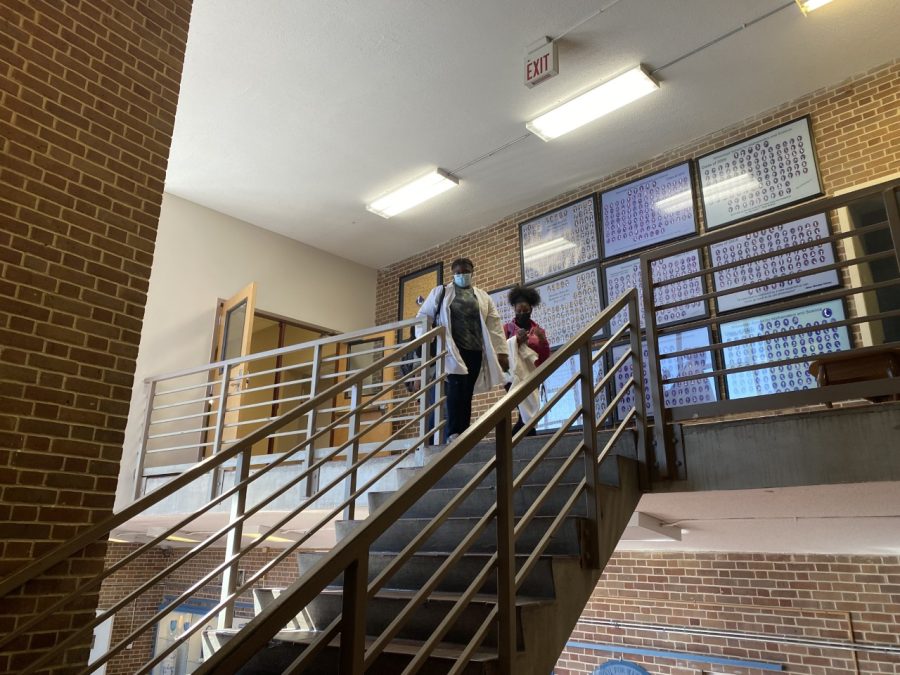Echols: MSMS Overworked
The Mississippi School for Mathematics and Science can be a hub for stress and anxiety.
April 19, 2022
If there are three statements I’ve heard most during my first year at MSMS, they would be “I didn’t go to sleep until [insert an unreasonable early morning hour] last night,” “I haven’t even eaten today — I’ve been studying every second I get” and “I’m literally running on fumes/caffeine.”
Though unspoken, a sense of respect and accomplishment comes with these statements — as if the farther away you are from a healthy sleep and eating schedule, the closer you are to the pinnacle of success. This debased mindset feeds into the unhealthy glamorization of overworking that surrounds MSMS and students across the nation.
While good grades alone were enough to set students apart from their peers at their home school, good grades are the norm at MSMS. In a place that provides such close proximity to other high-achieving students, students must find a way to separate themselves and receive the recognition they’ve grown used to. A lack of sleep, mental health prioritization and personal recreation are twisted into accolades to compare to their fellow students.
This phenomenon is unintentionally furthered by school leaders. Despite the good intentions of teachers and administrators who advise students not to sleep during their off blocks and instead put their brain to good use and study or finish homework, these statements reinforce the idea that a successful student spends every waking hour studying. Success in high school students is summed up in a line on a resume or their CommonApp, which comes at the expense of their mental and physical health. After all, “All A Honor Roll” sounds a lot better than “Habitual Napper.”
Studies show, however, sleep and self-care are just as important, even more so in some cases, as studying. A study from the Society for Research in Child Development stated, “Although the researchers expected that extra hours of studying that ate into sleep time might create problems in terms of students’ understanding of what they were taught in class, they were surprised to find that diminishing sleep in order to study was actually associated with doing more poorly on a test, quiz, or homework (the opposite of the students’ intent).”
On top of the negative effects a lack of sleep can have on academics, indulging in the culture of overwork by consistently neglecting self-care and sleep creates a greater chance for depression, anxiety and even suicide for students.
The toxic connotation that taking time for yourself is lazy doesn’t lead to better equipped and more productive students. Rather, it fosters a community of anxiety-prone students who value grades and accolades over their own well-being. We love to talk about the amazing things that MSMS students are doing, like juggling straight A’s with a never-ending list of extracurriculars that trail their email signature, but fail to acknowledge the unhealthy sacrifices students take to achieve this recognition.
We as a school community must work to rewrite the warped unwritten rules that define a successful student. A successful student should not be one who gives up their sanity, social life and mental health for the sake of grades and the ability to say, “I only slept an hour last night,” but one who values their well-being before anything. Destigmatizing socializing, working on a hobby or simply doing nothing can all mitigate the negative effects of overwork culture. At the end of the day, the perfect grades and slew of extracurriculars mean nothing if they mean sacrificing your own well-being.









